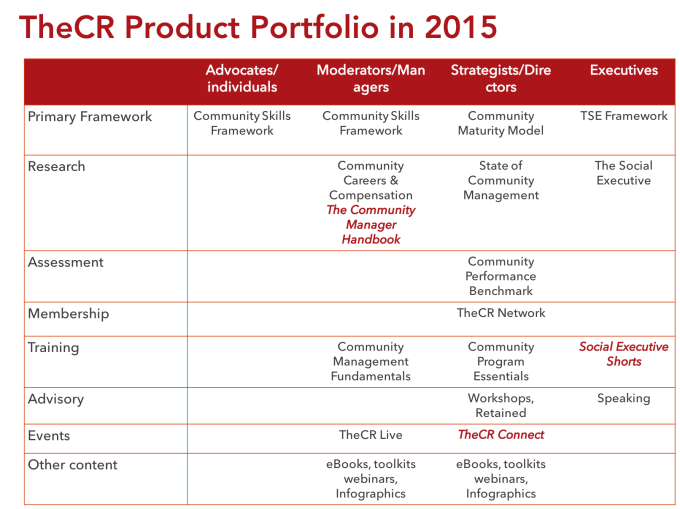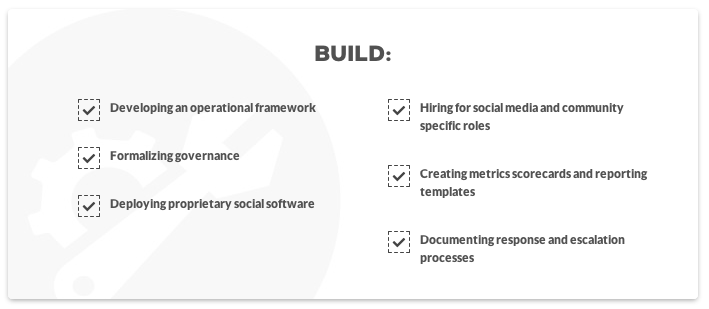By Shannon Abram, The Community Roundtable
I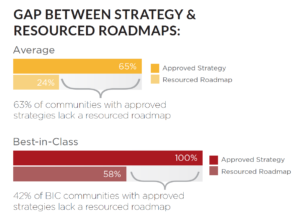 f you don’t know where you’re going it can be a long journey to success in community management – which is why we’re highlighting best practices for community roadmaps in this week’s #throwbackthursday post! From the basics of why a community roadmap is important, to the best practices you need to build a community roadmap, right on to securing executive buy-in for your strategy and roadmap we’ve got you covered.
f you don’t know where you’re going it can be a long journey to success in community management – which is why we’re highlighting best practices for community roadmaps in this week’s #throwbackthursday post! From the basics of why a community roadmap is important, to the best practices you need to build a community roadmap, right on to securing executive buy-in for your strategy and roadmap we’ve got you covered.
Don’t just take our word for it though. Our research has shown that there is a real gap between thinking about strategy in your community, and having a fully-resourced roadmap. 63% of communities with an approved strategy lack a resourced roadmap! Keep reading to learn how you can make the jump to a roadmap backed with resources!
This week’s #throwbackthursday focuses on the importance of a community roadmap.
- Why is a Community Roadmap Important? – A community roadmap gives direction to your community
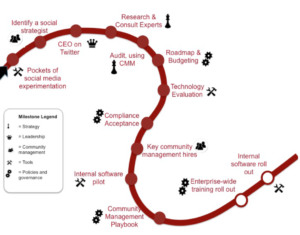
Building a community is not a linear path. A roadmap documents milestones to keep the community on the growth curve to success.
program. Your community strategy describes your destination. The roadmap helps steer you there. Roadmaps often look like project plans, detailing specific activities and the resources required. Roadmaps mark milestones in a community’s journey, making tracking progress easier.
- Building a Community Roadmap – The State of Community Management 2014 research found that the best–in-class communities are more likely to be able to translate an approved strategy into realistic planning. As a result, 85 percent of them can measure their value, however building a roadmap can be a daunting task for any community manager. This eBook helps you get started building your own roadmap!
- For TheCR Network Eyes Only: 5 Tips to Get Stakeholders to Like—Even Love—Your Roadmap
– Are you a member of TheCR Network? Check out this article inside the Network on how to get stakeholders on board with your roadmap!
Want even more #throwbackthursday action? Check out all our throwback posts!
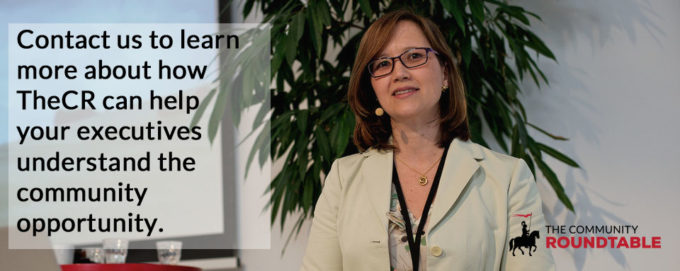
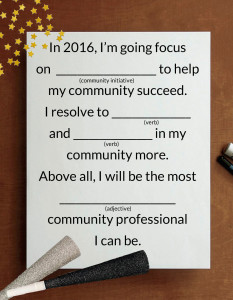 By
By 